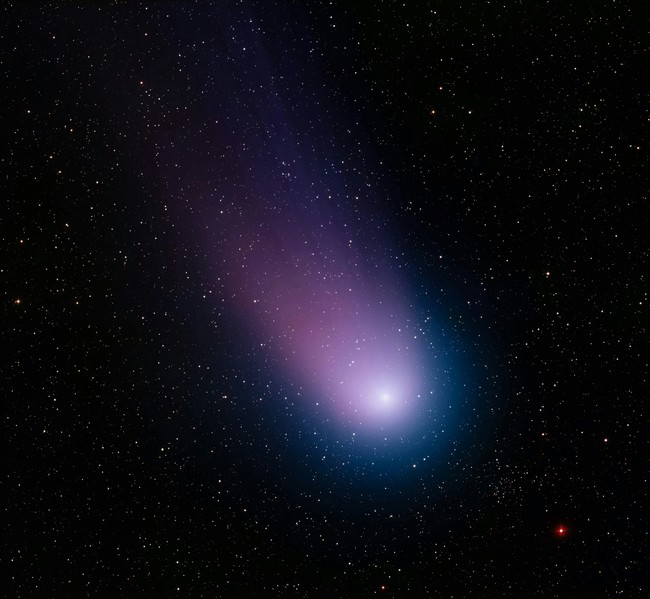
What’s your favorite way of experiencing and appreciating God’s creation? The majestic natural beauty that’s nearest to me — the Great Smoky Mountains and the Atlantic Ocean — are my favorite natural getaways. The rolling hills of the countryside and exploring the woods are all special to me, and I love a colorful sunrise or sunset.
But I think the moon and stars fascinate me the most. I can stare at the moon and marvel at it both as a lover of God’s creation and as someone who is fascinated that we sent men up there to it. I love the stars, especially when I can get away from light pollution.
Of course, creation puts me in awe of the Creator. King David expressed this sentiment in Psalm 19:1-6:
The heavens declare the glory of God, and the sky above proclaims his handiwork. Day to day pours out speech, and night to night reveals knowledge. There is no speech, nor are there words, whose voice is not heard. Their voice goes out through all the earth, and their words to the end of the world. In them he has set a tent for the sun, which comes out like a bridegroom leaving his chamber, and, like a strong man, runs its course with joy. Its rising is from the end of the heavens, and its circuit to the end of them, and there is nothing hidden from its heat.
The Apostle Paul told the church in Rome (and us) that the majesty of God’s creation leaves humans with no choice but to acknowledge Him:
For what can be known about God is plain to them, because God has shown it to them. For his invisible attributes, namely, his eternal power and divine nature, have been clearly perceived, ever since the creation of the world, in the things that have been made. So they are without excuse.
Romans 1:19-20 (ESV)
The theological concept for the idea that God reveals Himself in nature is called general revelation. The Lexham Survey of Theology explains general revelation this way: “General revelation is the belief that flows naturally from the idea that mankind was made in the image and likeness of God and that the human mind is therefore capable of seeing him at work in the order of the universe.”
Related: Sunday Thoughts: What Creation Reveals About the Creator
“General revelation comes through observing nature, through seeing God’s directing influence in history, and through an inner sense of God’s existence and his laws that he has placed inside every person,” explains Dr. Wayne Grudem in his “Systematic Theology: An Introduction to Biblical Doctrine.”
Podcaster Barry Cooper puts it this way:
That’s what the skies, the stars, are meant to do. According to Psalm 19, they’re meant to stagger us, to shock us out of our complacency, our overfamiliarity. The skies reach out and grab us by the shoulders and shake us and say, “Where do you think we came from?”
And if the sky has ever left you speechless and breathless, what must the Creator of sky be like? That’s the logic of Psalm 19.
The grandeur of the heavens draw our eyes upwards, towards something—or someone—beyond them. Mute as they are, they are communicating something to “all the earth . . . to the ends of the world.” By the fact of their existence, they constantly sing: “There is a Maker! He is powerful and beautiful and good. He created you, just as He created us. He sustains you—day after day—just as He sustains us.”
Of course, as inspiring and amazing as God’s general revelation is, it can only go so far for the unbeliever; he or she needs God’s special revelation of His Word and His plan of salvation as well. But for believers, this same general revelation drives us to worship and praise Him.
Have you not known? Have you not heard? The Lord is the everlasting God, the Creator of the ends of the earth. He does not faint or grow weary; his understanding is unsearchable.
Isaiah 40:28 (ESV)
O Lord, how manifold are your works! In wisdom have you made them all; the earth is full of your creatures.
Psalm 104:24 (ESV)
By faith we understand that the universe was created by the word of God, so that what is seen was not made out of things that are visible.
Hebrews 11:3 (ESV)
The God who made the world and everything in it, being Lord of heaven and earth, does not live in temples made by man, nor is he served by human hands, as though he needed anything, since he himself gives to all mankind life and breath and everything. And he made from one man every nation of mankind to live on all the face of the earth, having determined allotted periods and the boundaries of their dwelling place, that they should seek God, and perhaps feel their way toward him and find him. Yet he is actually not far from each one of us, for “In him we live and move and have our being”; as even some of your own poets have said, “For we are indeed his offspring.”
Acts 17:24-28 (ESV)
I pray that the majesty of God’s creation — His general revelation — drives you to worship Him and give Him glory.

